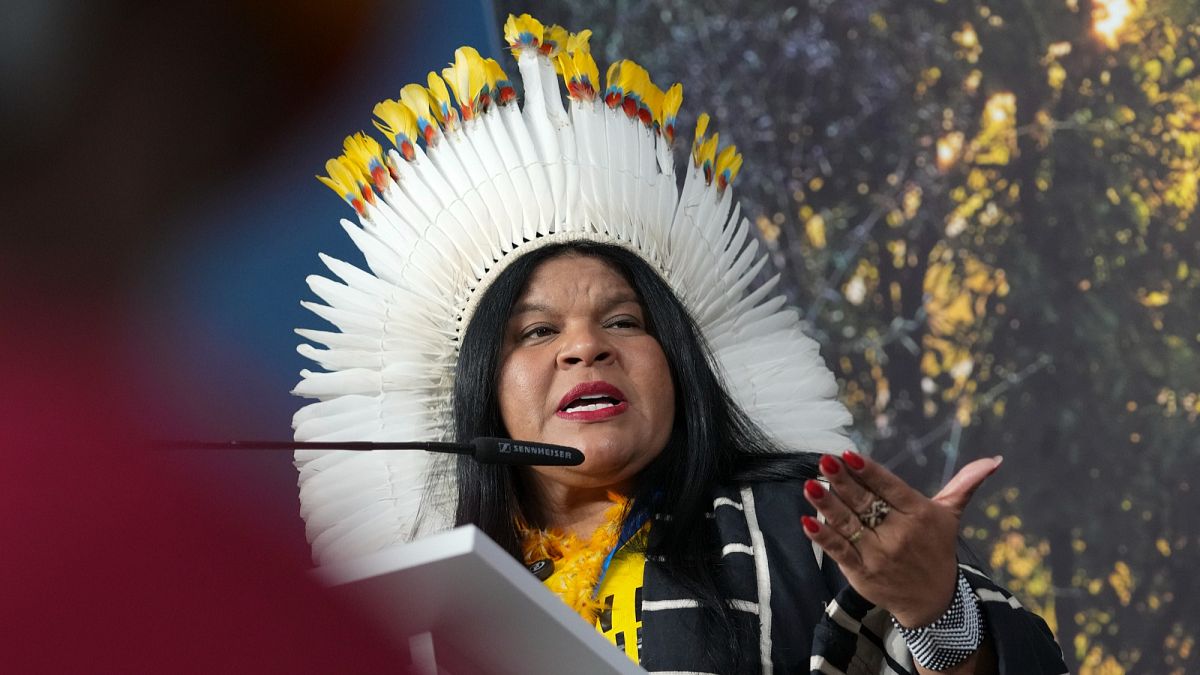Published on
Exactly one month before the start of COP30, the Brazilian Minister of Indigenous Peoples, Sonia Guajajara, requested the support of the European Union for the establishment of a new fund to protect tropical forests.
Named the Tropical Forests Forever Fund (TFFF), the project envisions a contribution of $125 billion (€108 billion), with $100 billion (€86 billion) coming from private financing and the rest from government funds and philanthropy.
20% of resources will go towards direct financing of indigenous peoples
The main goal of the fund is to provide annual payments to countries with tropical forests as a reward for maintaining or increasing forest cover. The areas will be analysed through satellite remote sensing.
“It is very important that the European Union can also demonstrate adherence to this fund by contributing financial resources and thus encouraging other countries to put in their resources so that we can continue to protect tropical forests around the world,” Guajajara said in an exclusive interview with Euronews.
“We are now thinking as a bloc so that this fund reaches at least 75 countries, including those with forests and also the Atlantic Forest. The major difference is the allocation of 20 per cent of the resources for direct financing of indigenous peoples and local communities,” she explained.
The mechanism, considered an innovative initiative by the Brazilian government, is one of the main proposals of the hosts for the conference held in Belém, the first to take place within the Amazon Rainforest.
The ministry led by Guajajara participated actively in the development of the new fund.
The minister and indigenous activist advocates for the essential role of local communities in forest protection.
“It is proven that indigenous territories and indigenous peoples are the ones who preserve biodiversity and forests the most, significantly contributing to climate balance through their way of life. Therefore, it is impossible to think of solutions without considering those who are protecting the forests,” Guajajara concluded.
Brazil invites EU countries to contribute to the fund
To investors, the initiative promises financial returns through the management of a diversified fixed income portfolio, generating yields above the cost of capital.
Among the international organisations that contributed to the proposal are the World Bank, the Food and Agriculture Organisation of the United Nations (FAO), the Organisation for Economic Co-operation and Development (OECD), and the United Nations Development Programme (UNDP).
Brazil also led the creation of an international committee to help shape the fund. This group includes six developing countries (Brazil, Colombia, Democratic Republic of Congo, Ghana, Indonesia, and Malaysia) and five potential investor countries (France, Germany, Norway, the United Arab Emirates, and the United Kingdom).
In a meeting during the last UN General Assembly in New York, the Brazilian president confirmed in advance a contribution of $1 billion (€864 million) to the fund.
“Brazil will lead by example and become the first country to commit to an investment of $1 billion [€864 million]. Therefore, I invite all present partners to make equally ambitious contributions so that the TFFF can become operational at COP30 in November, in the South American Amazon,” declared Lula.

